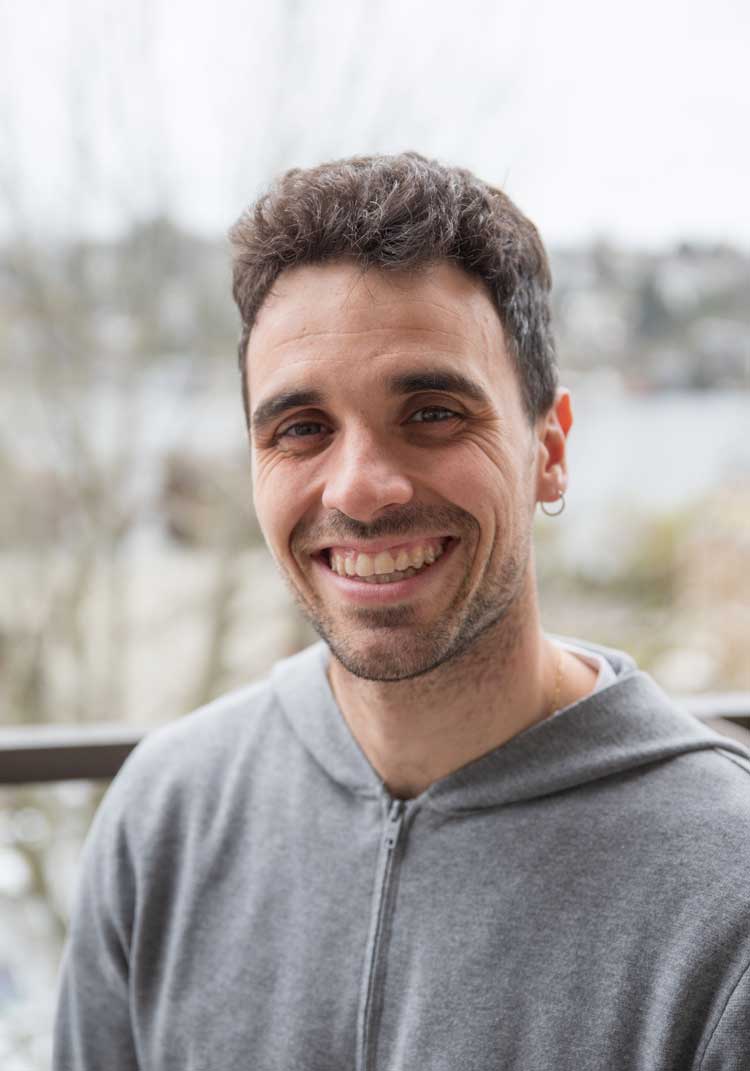 Congratulations to Aaron del Pozo Sanz, a post-doctoral scholar at the University of Washington School of Pharmacy’s Barker-Haliski Lab!
Congratulations to Aaron del Pozo Sanz, a post-doctoral scholar at the University of Washington School of Pharmacy’s Barker-Haliski Lab!
Aaron has been awarded a 2023 Early Career Postdoctoral Research Fellowship from the American Epilepsy Society (AES) funded through Partners Against Mortality in Epilepsy (PAME). This fellowship recognizes Aaron’s outstanding dedication and contributions to epilepsy research.
The American Epilepsy Society’s commitment to supporting trainees, fellows, and new investigators working on various aspects of epilepsy research, from basic science to translational and clinical studies, is commendable. By providing vital research dollars, AES plays a crucial role in advancing knowledge and finding effective treatments for all types of epilepsy, seizures, and related conditions.
To gain insight into his work and the significance of this fellowship, we had the privilege to interview Aaron and ask him a few questions:
Q: What research will this fellowship be funding?
A: This research aims to find a cure for the Sudden Unexpected Death in Epilepsy (SUDEP). SUDEP is a significant and often under-recognized public health concern with considerable relevance in society that refers to the sudden, unexpected death of an individual with epilepsy, occurring without an apparent cause during or immediately following a seizure. This devastating outcome affects not only the person with epilepsy, but also their families, friends, and the wider community.
Q: What is the goal for your research?
A: Overall, this proposal aims to describe by video-EEG monitoring the mortality features of Transgenic mice subjected to chronic evoked seizures. Moreover, I aim to pharmacologically prevent the mortality using two different pharmacological strategies: using lorcaserin, a 5-HT2C receptor agonist or cannabidiol, a broad-spectrum anti-inflammatory and serotonin modulator recently approved in other SUDEP disorders such as Dravet Syndrome.
Q: What is the most exciting for you about this fellowship and what are you hoping to learn?
A: The most exciting part of this fellowship is to uncover other SUDEP models and medicines that can exert a significant impact in the understanding and comprehension of SUDEP. I hope to achieve the following skills:
- To acquire a comprehensive understanding of the underlying mechanisms and risk factors that contribute to SUDEP.
- To enhance my research skills and methodologies, honing my ability to design rigorous studies, analyze data, and interpret results accurately.
- To work closely with esteemed researchers, clinicians, and experts in epilepsy and related disciplines. Engaging in fruitful collaborations will facilitate the exchange of ideas, foster innovative thinking, and create a supportive network that enhances the impact of our collective efforts.
- To explore the translational aspects of my research. My goal is to bridge the gap between research findings and real-world applications, seeking potential avenues for preventive measures, interventions, or treatments that can be applied in clinical settings to reduce the risk of SUDEP.
- To engage with individuals and families who have been affected by epilepsy and SUDEP. Through these interactions, I hope to develop a deeper sense of empathy and understanding of the challenges they face, driving me to become a passionate advocate for improving the lives of those impacted by epilepsy and raising awareness about SUDEP in the wider community.
- To share the knowledge and insights gained from this fellowship with the broader scientific community and the public. Through publications, presentations, and outreach initiatives, I hope to create awareness about SUDEP and contribute to a positive impact on public health policies and clinical practices.
Q: What does receiving this fellowship mean to you?
A: Receiving this fellowship is a deeply profound and personally significant milestone in my life. It represents an incredible opportunity to make a tangible impact on the lives of countless individuals living with epilepsy, as well as their families and communities. The gravity of this fellowship’s purpose resonates deeply with me, and it evokes a sense of purpose and responsibility that I carry with utmost dedication and passion.
Furthermore, it is s a recognition of the potential impact my work can have in advancing our understanding of SUDEP and, most importantly, in developing effective treatments or interventions. It bolsters my resolve to contribute to the scientific community’s collective efforts in unraveling the complexities of epilepsy and working towards a future where no one has to face the fear of sudden, unexplained deaths due to seizures.
On a personal level, this fellowship represents a unique chance to give back to society in a way that holds immense significance. It fuels my desire to contribute positively to the lives of others and to work tirelessly towards alleviating the burden that SUDEP places on individuals and their families.